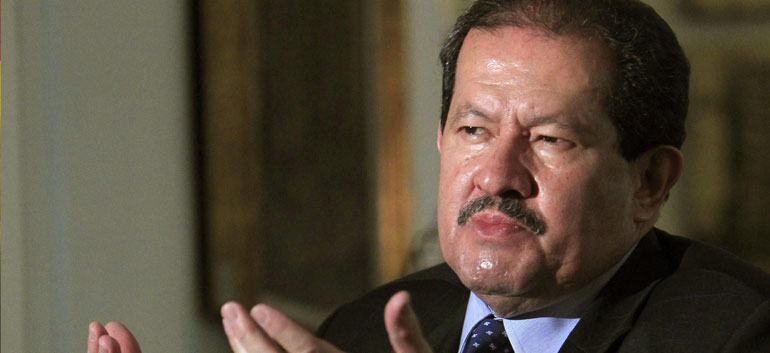As doubts over President Juan Manuel Santos’ ability to handle deepening civil unrest swirl through the Colombian media and public discourse, other government figures are beginning to take more vocal leadership roles.
On Wednesday, Senate President Juan Fernando Cristo created a commission to deal with the ongoing labor crisis.
Explaining the move, he pointed to the need for a more proactive stance on the part of the national government, which he says has been putting off its responsibilities to the people.
“We [in the government] haven’t been able to make decisions from the background to create agriculture policy that serves farmers.”
Agriculture policy, he said, would be one of the priorities, as the Senate began calling in farm organizers to speak early last week, including Cesar Panchon, leader of the much-publicized Boyaca protests. But according to Fernando’s statement, the commission, comprised of 13 senators, will also make an effort to reach out to other, as-of-yet unaddressed sectors, such as the teachers and truckers unions.
Meanwhile, at the human rights forum he has spearheaded in Medellin, Vicepresident Angelino Garzon gave a more direct assessment of the situation facing Colombia’s labor block, and the response so far on the part of the government.
“The [Colombian] people are tired of living so miserably,” he told an assembly of human rights, labor and business leaders. “Human rights are necessary for the dignified treatment of the population. Agreements [the government signs] with the farmers should be adhered to, and not made just to delay solutions.”
The protests, he explained, are a response to what he called “the people’s fatigue of living poorly”, and a sign of an opening Colombian society.
“In a democracy,” he said, “people start claiming their rights.”
Vice-president Garzon, a longtime labor leader himself, has been outspoken about the need for dialogue and substantive reform to end the protests, and resolve the troubling human rights issues involved in the violent conflicts they have inspired, which he has called, “poor people fighting against poor people”.
“The farmers and the indigenous are poor people,” he told reporters earlier this week, “and the police are poor people. It’s absurd what’s happening in this social protest. The most important thing is for us to find a road to dialogue between the National Government and the agriculture leaders to find appropriate solutions [to the protests].”
Senator Fernando called on President Santos to “directly assume the leadership position” regarding the issue of the strikes, but with formal dialogues with most of the important national labor blocks still noticeably absent, others might have to be more aggressive in bringing about an end to the problem.
Sources
- ‘La gente de Colombia se esta cansada de vivir miserablemente’: Angelino Garzon (CM&)
- Enfrentamientos con la policia son ‘una lucha de pobres’: Vicepresidente (CM&)
- No hemos sido capaces de tomar decisiones de fondo frente a la politica agraria: Senado (CM&)
- ‘La gente esta cansada de vivir tan pobremente: Angelino (El Tiempo)


